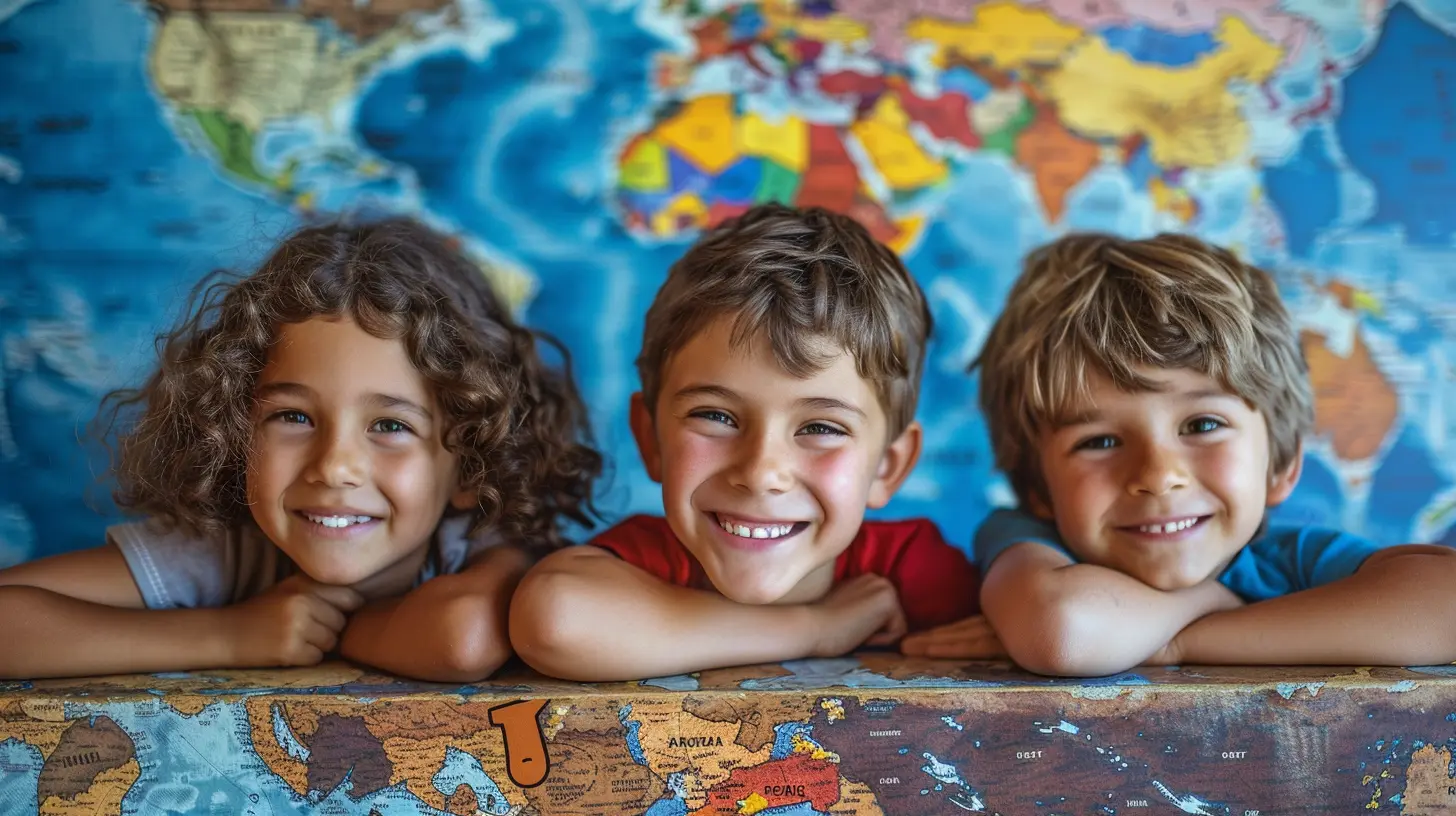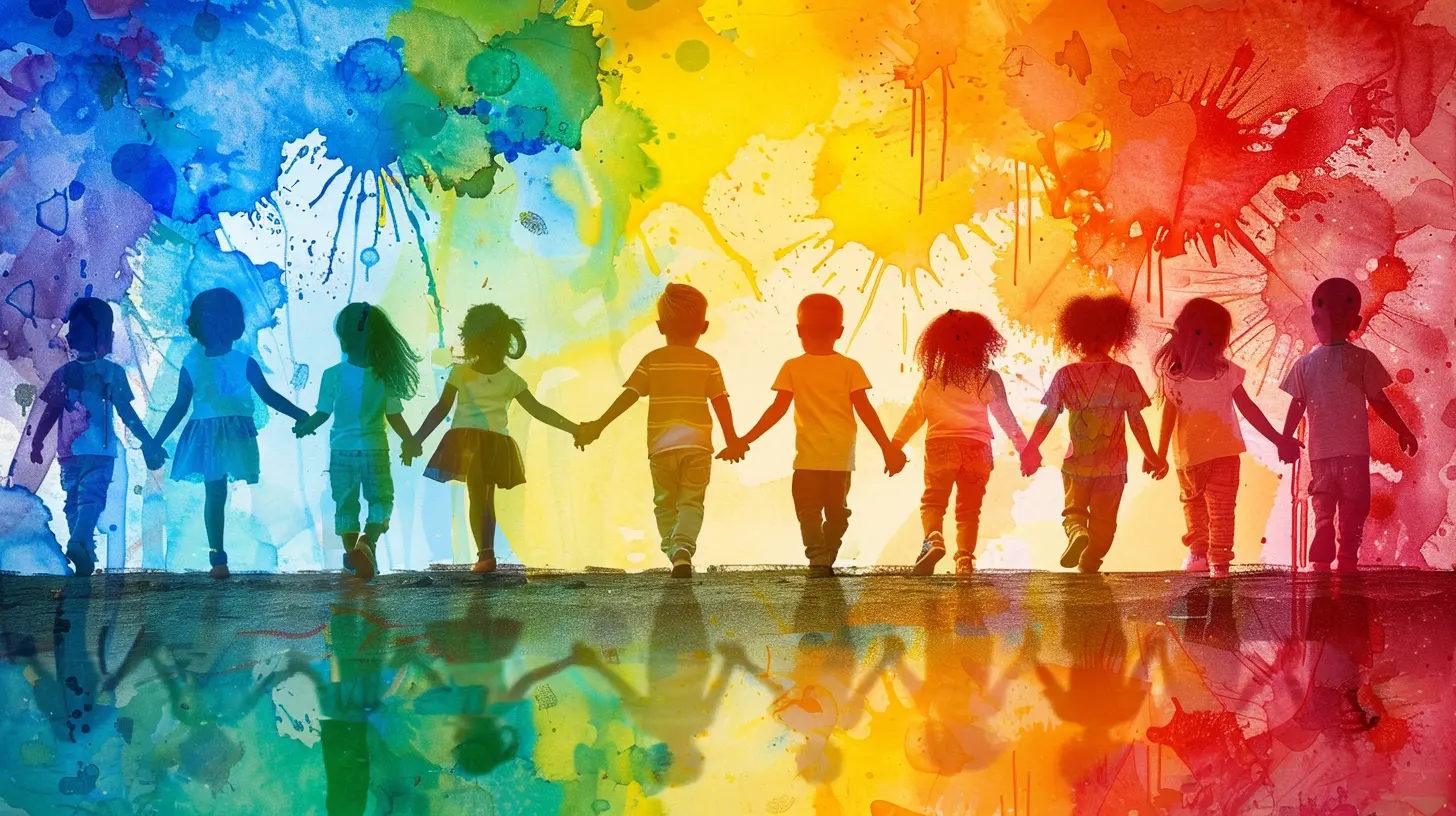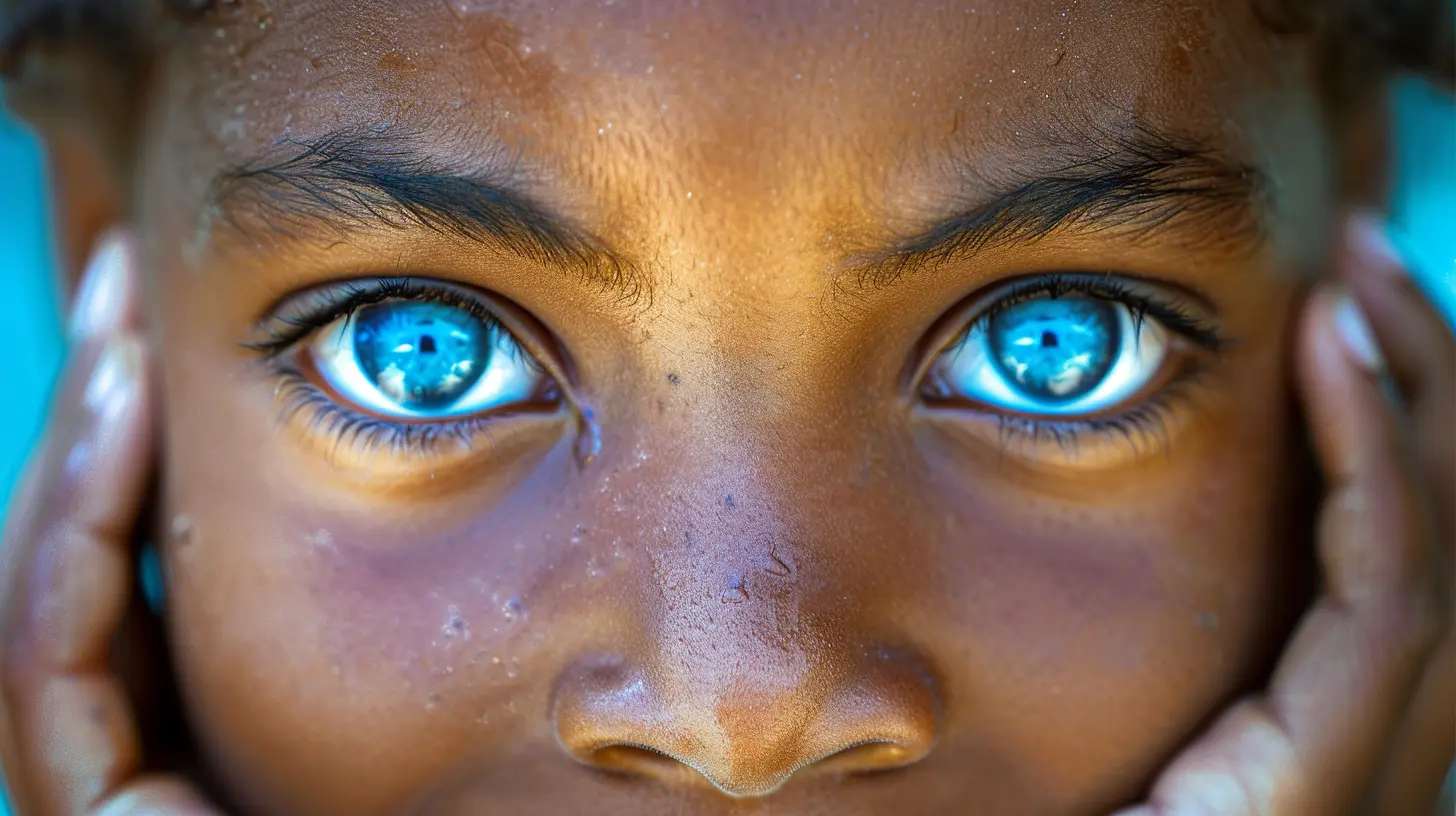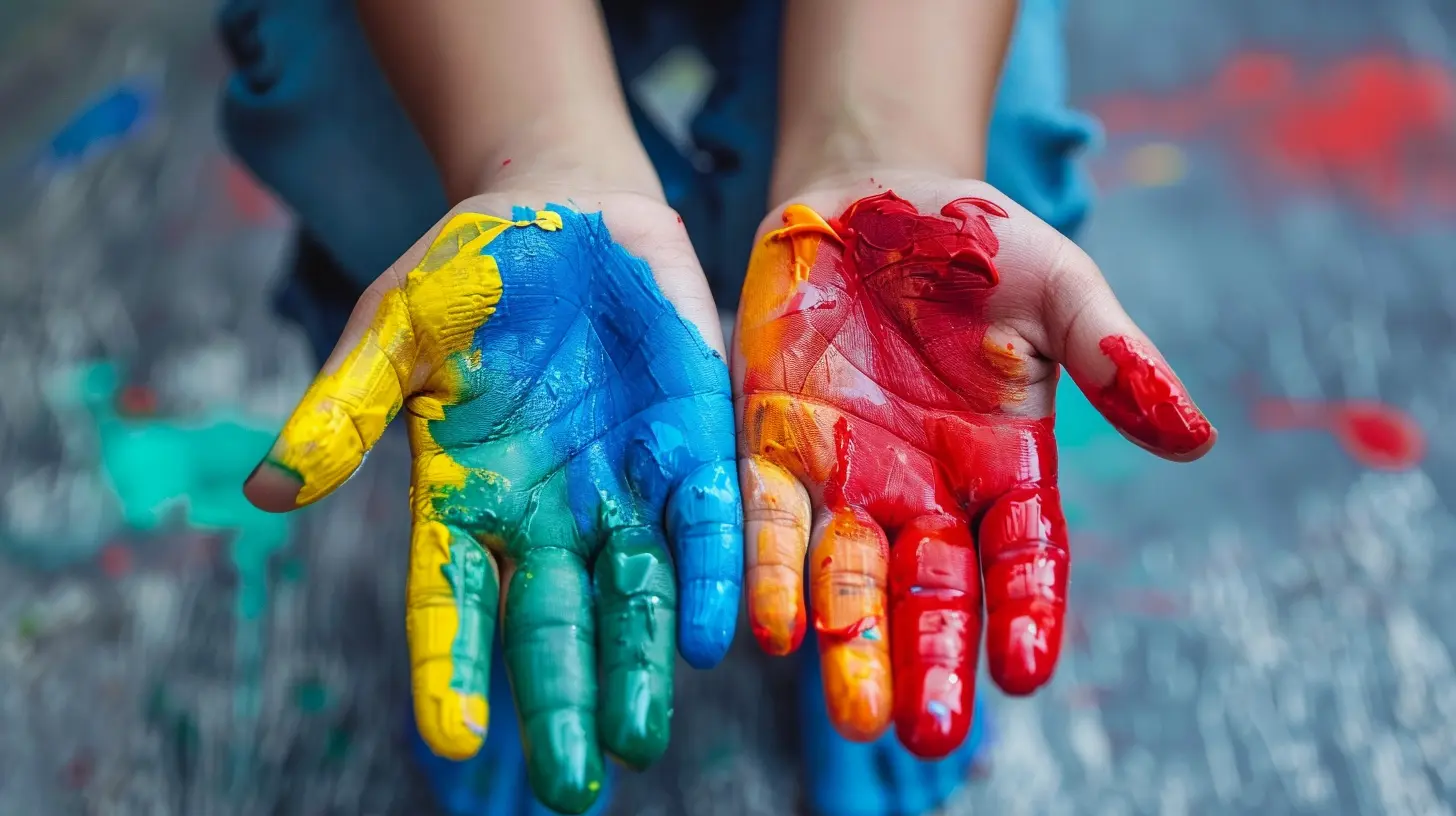The Role of Cultural Identity in Child Development
20 July 2025
Cultural identity plays a massive role in shaping how a child sees the world and themselves. It influences their beliefs, values, behaviors, and even how they interact with others. But have you ever wondered how deeply cultural identity affects a child's development? It’s not just about speaking a certain language or celebrating specific holidays—it impacts their self-esteem, social skills, and overall psychological well-being.
In this article, we’ll break down the significant ways cultural identity influences child development, why it's essential, and how parents and communities can help nurture a strong sense of cultural belonging.

What Is Cultural Identity?
Before diving into its role in child development, let's clarify what cultural identity actually means. Simply put, it’s the sense of belonging to a particular culture or ethnic group. It includes traditions, language, customs, values, and beliefs that are passed down through generations.For children, cultural identity isn't something they wake up with one day—it develops over time through interactions with family, peers, and society. The way a child sees their own culture can shape their confidence, how they relate to others, and even their mental health.

How Cultural Identity Shapes Child Development
1. Building a Strong Sense of Self
Children who grow up with a firm understanding of their cultural identity tend to have higher self-esteem. When kids understand where they come from and what makes their background unique, they often feel a stronger sense of pride and belonging.Imagine if a child grows up bilingual, speaking both their native language and the dominant language of their country. If their family encourages them to embrace both, they are likely to feel more confident in their identity. On the other hand, if they’re made to feel ashamed of their heritage, they may struggle with self-doubt and insecurity.
2. Emotional and Psychological Well-being
A strong cultural identity can act as a shield against stress and anxiety. Children who feel connected to their culture have a solid support system and a stronger sense of belonging, both of which are crucial for mental health.Studies have shown that kids who experience cultural disconnection are more likely to face issues like depression, anxiety, and even difficulties in academic performance. When children feel alienated from their cultural roots, they might struggle with identity confusion, leading to emotional distress.
3. Influences Social Skills and Relationships
Culture shapes how children interact with others. From a young age, cultural norms teach kids how to communicate, express emotions, and engage in social situations.For example, in some cultures, eye contact is a sign of respect, while in others, it might be considered rude. A child growing up in a multicultural environment has to navigate these differences, which can either enhance their social adaptability or create confusion if not properly guided.
Parents and caregivers play a key role in helping children understand these cultural nuances so they can build healthy social relationships.
4. Cultural Identity and Academic Success
Believe it or not, cultural identity can affect how well a child does in school. When children feel connected to their heritage, they tend to be more motivated and engaged in learning. Schools that incorporate multicultural education help children feel more valued, boosting their confidence and academic achievement.On the flip side, if a child's cultural background is ignored or even seen as inferior, they might struggle with feelings of exclusion. This can lead to a lack of interest in school, difficulty making friends, or even behavioral issues.
A simple example? A child who is discouraged from speaking their native language at school might feel disconnected from both their home life and academic environment, making them feel lost between two worlds.
5. Coping with Discrimination and Stereotypes
Unfortunately, children from minority cultural backgrounds often face discrimination and stereotypes. This can take a toll on their mental health and self-esteem. However, when kids are raised with a strong cultural foundation, they are better equipped to handle these challenges.Teaching children about their cultural heritage in a positive way helps them develop resilience. If they know their background is valuable and something to be proud of, they’re more likely to push back against negative stereotypes rather than internalizing them.
Parents and educators can play a crucial role in reinforcing cultural pride and teaching children constructive ways to respond to discrimination.

The Role of Parents in Strengthening Cultural Identity
So, how can parents help their children develop a strong sense of cultural identity? Here are some practical ways:- Encourage Cultural Traditions: Celebrate cultural holidays, cook traditional meals, or participate in community events that reflect your heritage.
- Teach the Language: If your culture has a native language, encourage your child to learn and speak it. Bilingualism has cognitive benefits and strengthens cultural connections.
- Share Family Stories: Stories about ancestors, family traditions, and history help children feel connected to their roots.
- Expose Them to Cultural Media: Books, music, and movies from your culture help introduce children to their heritage in a fun and engaging way.
- Create a Diverse Environment: Surround your child with people from similar cultural backgrounds while also encouraging openness to other cultures. This helps them develop both cultural pride and an appreciation for diversity.

The Role of Schools and Society
Cultural identity doesn’t just develop at home—it’s also shaped by schools and the broader community. Educational systems play a critical role in either supporting or neglecting a child’s cultural background.1. Multicultural Education
Schools that embrace multicultural education help children from all backgrounds feel valued and seen. Incorporating diverse histories, traditions, and perspectives into the curriculum can prevent cultural alienation.2. Representation Matters
When children see teachers, books, and media that represent their culture in a positive way, it strengthens their identity. Representation fosters confidence and helps kids feel like they belong.3. Community Support
Neighborhoods, religious groups, and cultural organizations play a huge role in cultural identity development. Events like cultural festivals and community gatherings create a sense of belonging and help children connect with their heritage outside of the home.Can a Child Have Multiple Cultural Identities?
Absolutely! In today's globalized world, many children grow up in multicultural environments where they inherit influences from multiple backgrounds. Being bicultural or multicultural can be a strength, as it teaches adaptability, open-mindedness, and empathy.However, children growing up between cultures may sometimes feel torn between identities. Parents and caregivers can help by encouraging them to embrace all aspects of their heritage rather than choosing one over the other. The key is to create a supportive environment where kids feel free to explore and take pride in their diverse backgrounds.
Final Thoughts
Cultural identity isn't just a "nice-to-have" aspect of child development—it's a crucial foundation for emotional well-being, social development, and academic success. Children who understand and embrace their cultural identity are more confident, resilient, and prepared to navigate the complexities of modern society.As parents, educators, and community members, supporting a child's cultural identity is one of the most valuable gifts we can give them. By nurturing this connection, we empower them to grow into self-assured individuals who appreciate their roots while embracing the world around them.
all images in this post were generated using AI tools
Category:
ParentingAuthor:

Jenna Richardson
Discussion
rate this article
1 comments
Vivian Adkins
This article highlights an essential aspect of child development—cultural identity. Understanding how cultural backgrounds shape children's experiences and perspectives is crucial for fostering their emotional and social well-being. It prompts a reflection on the importance of embracing diversity in nurturing resilient, confident individuals.
August 8, 2025 at 4:01 AM

Jenna Richardson
Thank you for your insightful comment! Embracing cultural identity indeed plays a vital role in nurturing well-rounded and resilient children.


